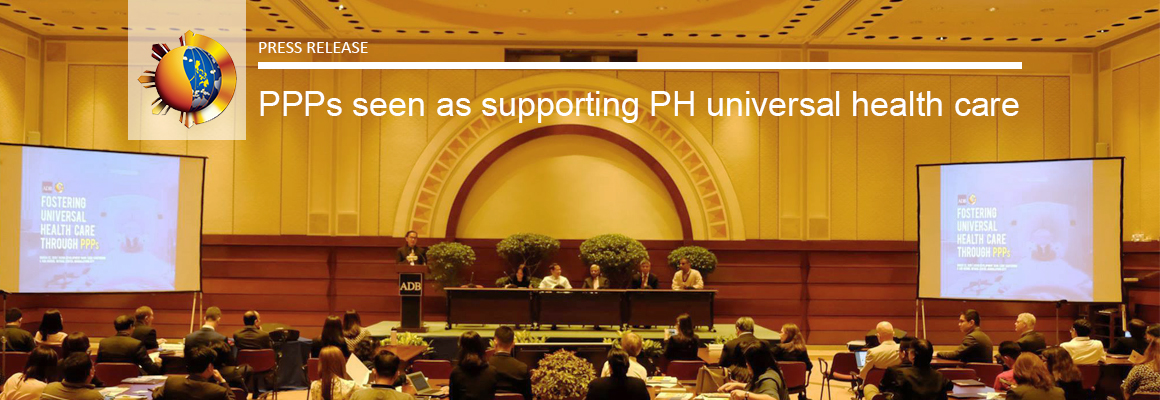
In the forum organized by the Public-Private Partnership (PPP) Center of the Philippines, themed “Fostering Universal Health Care through PPPs,” the participants discussed that PPP is a viable option in the implementation of the Universal Health Care (UHC) Act in the country. The forum was held on March 22, 2019 in collaboration with the Asian Development Bank (ADB) and attended by national government agencies, spearheaded by the Department of Health (DOH), local government units, hospitals, health sector representatives, legislators and development partners. In the forum, the participants also discussed the challenges of implementing the UHC Act, a new law that would provide health care coverage for all Filipinos.
DOH Secretary Dr. Francisco T. Duque III opened the forum highlighting that the new law will shift from targeting better health outcomes to achieving financial protection and responsiveness. Secretary Duque further highlighted the potential of private sector participation in delivering universal health care for all Filipinos. “The role of the private sector in the universal health care cannot be overemphasized,” said the health secretary. “The UHC Act provides more opportunities for the private sector to expand their market reach and challenge their creativity in developing value enhancing solutions.”
In his special remarks, Mr. Diwakar Gupta, ADB Vice-President for Private Sector and Cofinancing Operations, acknowledged the contributions of the PPP Center and the strong commitment of the Philippines in making the country a dynamic PPP market in the region. “The Philippines has strengthened the legal, regulatory, and institutional framework, as well as the underlying financial support structure to the degree that the country now scores high (seventh position) in the global ranking of PPP readiness, joining countries like Japan or Korea,” he said.
Dr. Troy Gepte, who represented Senator Joseph Victor G. Ejercito, the principal sponsor of the Senate version of the UHC Bill, expressed support to and shared the actions currently being done by both the DOH and PhilHealth toward developing the Implementing Rules and Regulations of the UHC Act. He added that the public can expect a series of consultations and meetings with all stakeholders and requests the private sector to participate and go over the UHC Act to find ways on how the government and the private sector would complement each other in helping provide universal health care to all.
PPP Center Deputy Executive Director Mia Mary G. Sebastian discussed the ways the Center could help support the development of health care PPPs, especially at the local level. This includes the Center’s assistance to implementing agencies in project development through the conduct of business cases and access to funding from the Project Development and Monitoring Facility (PDMF), a revolving fund managed by the PPP Center to develop and prepare viable infrastructure and development PPP projects.
Asec. Sebastian cited as examples the Center’s technical assistance, through the collaboration with the DOH Public-Private Partnership for Health–Project Management Unit, for the development of hemodialysis centers at Baguio General Hospital and Cagayan Valley Medical Center, and the funding support for feasibility studies, through the PDMF, provided to the University of the Philippines (UP) for the operations and maintenance of the Philippine General Hospital in UP Diliman.
Congressman Jose Enrique S. Garcia III, Vice Chairperson of the House Committee on Health, clarified too the misconception on PPPs. “Privatization is selling it, so it is totally private. But PPP, it is still government.”
PPP Center Undersecretary and Executive Director Ferdinand A. Pecson, meanwhile, identified the areas where PPPs can support implementing agencies in pursuing their PPP projects in the health sector, and to learn how PPPs can be a viable option to attain the objectives of the UHC Act.
“It is not about banning PPP in health care. It is about regulating it properly such that the goals of universal health care are achieved,” he added.

